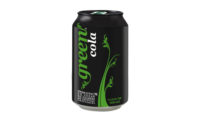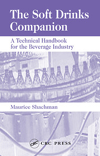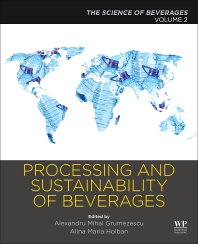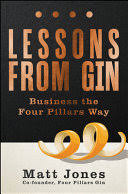Going green and saving green
Demand for sustainability increases use of molded fiber packaging

With sustainability being a new driving force in the industry, packaging developers are expanding the possibilities and accelerating the adoption of advanced molded fiber packaging applications.
As trendsetters such as Walmart have shown, working with suppliers to create sustainable packaging is vital for retailers and manufacturers looking to reduce input, transportation, storage and disposal costs, as well as to promote their concern for the environment to consumers. The issue of disposal difficulties with many non-renewable materials has only served to heighten interest in this field and accelerate the adoption of sustainable packaging.
According to a 2011 DuPont global survey of consumer packaged goods companies and packaging converters, sustainability is the top challenge facing the global packaging industry. Thirty-nine percent of the almost 500 packaging professionals surveyed cited sustainability as the No. 1 issue, followed by 33 percent citing cost. Of the survey respondents working on sustainable packaging, 65 percent said their focus was on design for recyclability or use of recycled content.
Fortunately, with sustainability as their mantra, packaging developers are expanding the possibilities available with advanced, economical molded fiber packaging applications. As a result, more and more retailers, manufacturers and consumers in markets such as the wine, candle, health and beauty and consumer electronics industries are adopting sustainable molded fiber packaging.
Newspaper and water
Molded fiber packaging is made from 100 percent recycled newspaper, made into a slurry with water and converted into custom packaging after it is vacuum-formed on screened molds. Because it is made entirely from recycled paper and water, molded fiber packaging is 100 percent recyclable, biodegradable and sustainable. This reduces input and disposal costs compared with less recyclable, petroleum-based materials.
Molded fiber’s natural resilience and its blocking and bracing capabilities enable it to perform as well as most vacuum-formed plastic, expanded polystyrene (EPS) and corrugated designs. Not only is molded fiber packaging often less costly than EPS or other foam products, but it also requires less space to ship and store, so it frequently reduces transportation and storage costs.
Although the demand for recycled packaging has been growing for years, molded fiber has traditionally been associated with items like box inserts, cup carrying trays and egg carton packaging that have limited consumer appeal.
Recently, however, some packaging industry providers have added specialty equipment and techniques that have significantly expanded the capabilities of traditional molded-fiber packaging. For instance, UFP Technologies, a custom converter of molded fiber, has added high-tonnage presses capable of producing after-pressed parts with more aesthetic appeal than traditionally formed molded fiber. This enables the creation of retail-friendly packaging options like folding cartons and clamshells with high aesthetic appeal that convey a sustainable cachet.
Using color to accentuate branding also is possible, as was done when dark purple was added to molded fiber trays for the BlackBerry smartphone. Other packaging applications that have fueled growth have been after-pressed trays, clamshells and inserts featuring not only color but clearly embossed customer logos.
Now, molded fiber packaging has won awards and promotes the environmental concern and image of the manufacturers who use it.
Recently, for instance, Grafcor Packaging, a Rockford-Ill.-based designer, developer, manufacturer and distributor of packaging materials for the food, beverage, healthcare and beauty markets, won an Ameristar packaging award in the beverage category for a 12-bottle molded fiber wine shipper that passed UPS and FedEx tests.
To create a wine shipper that combines the sustainable, protective cushioning of molded fiber with the tough, vibration resistance of corrugate, Grafcor Packaging partnered with UFP Technologies. The wine shipper, called “Bottoms Up,” allows wine bottles to be safely shipped cork down to prevent cork drying, which prevents oxygen entry into the bottle.
“Unlike bulky, petroleum-based EPS, molded fiber is completely sustainable, recyclable and biodegradable,” says Bill Hall, owner of Grafcor Packaging. “Because the molded fiber ships at about a 4:1 ratio by truckload compared to EPS, it can also save in transport and storage costs.
“In working with thin-walled custom-molded fiber, getting the depth of the draw and the size of the part right was challenging, and we wouldn’t have succeeded without engineering and production help from UFP Technologies,” Hall continues. “Their willingness to ramp up production in late October, in the midst of the busy holiday season, also helped us to meet strong demand in the marketplace.”
Based on the success of the molded fiber wine shipper, Grafcor Packaging is adapting designs to ship beer, spirits and coffee syrup, which often must protect glass bottles from breakage.
“Retailers, manufacturers and consumers are responding to molded fiber’s sustainability and unique look,” Hall concludes. “Its craft fiber appearance accentuates the fact that it’s made from 100 percent recycled paper. With the help of custom developers like UFP Technologies, what’s possible is expanding to the point where everyone should take a look.”
For more information, please call UFP Technologies Inc. at 877/868-0176, email them at moldedfiber@ufpt.com or visit www.ufpt.com/moldedfiber.
Looking for a reprint of this article?
From high-res PDFs to custom plaques, order your copy today!








